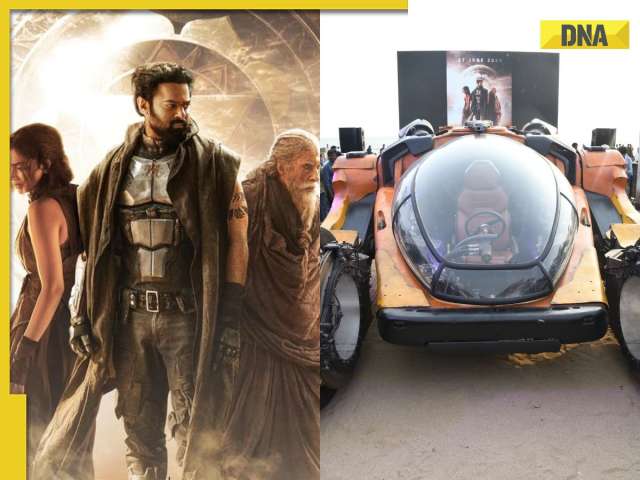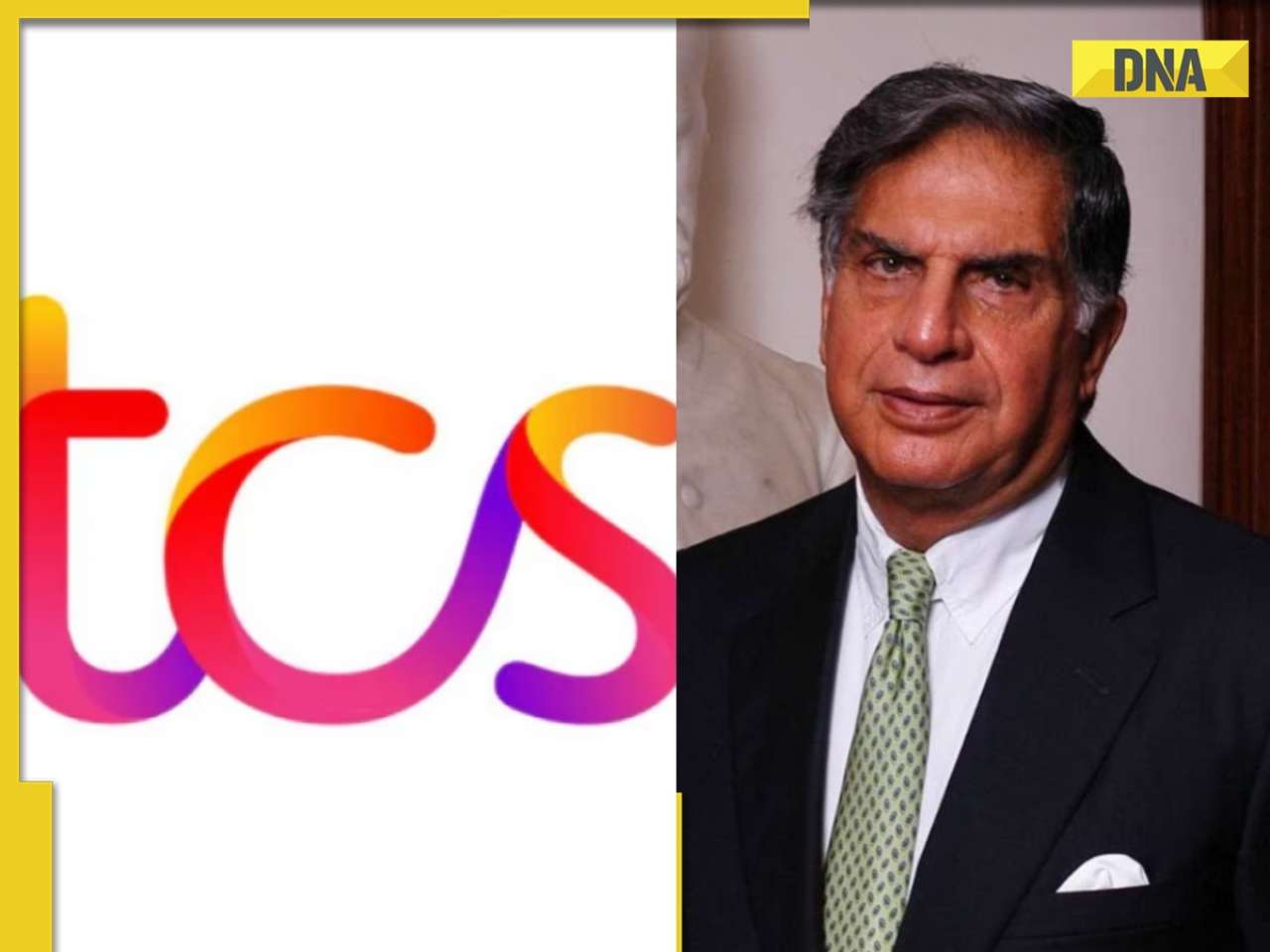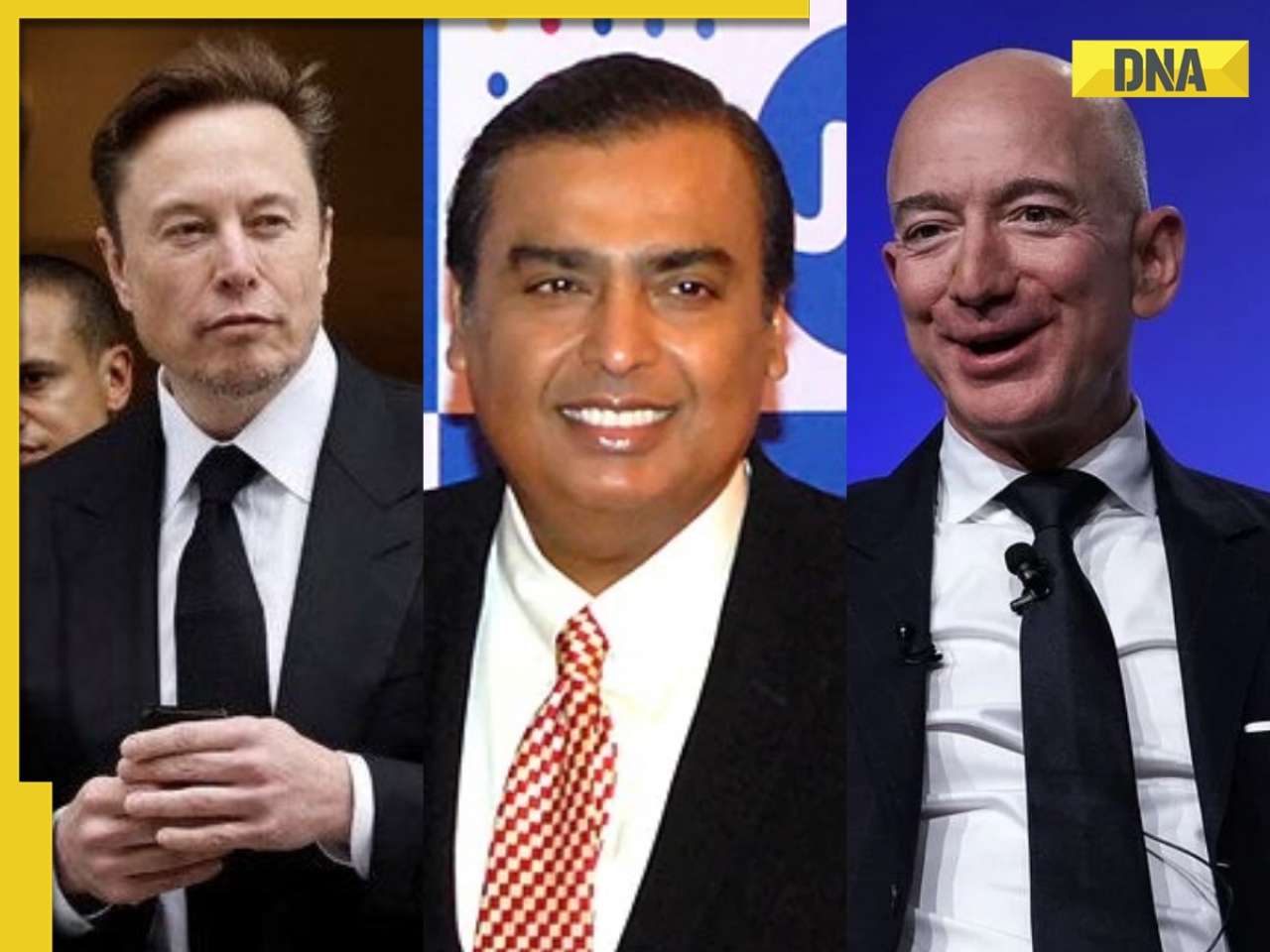“Great marketing is great storytelling,” wrote marketing guru Jack Trout in a recent column on www.Forbes.com.
MUMBAI: “Great marketing is great storytelling,” wrote marketing guru Jack Trout in a recent column on
www.Forbes.com. “All great religions are sold via storytelling, or parables, as they are often called in Christianity. This is a good strategy; people are inherently interested in stories, whether in films or novels or, even, brands.”
Nevertheless, that doesn’t seem to be happening. “Branding has been turned into a mountain by hundreds of experts, by writing books, on their take on marketing. What is a simple, straight forward process has become very complicated,” he says.
To buttress his point, he gives the example of Wal-Mart, the world’s largest retailer.
“While everyone knows about its low prices, very few know the story behind them. To deliver these prices, the company uses some amazing technology and computer systems. It encourages suppliers to shrink package size to reduce shipping weight to save money; it buys local produce to avoid transportation costs. Sam’s Club (a chain of members-only stores owned by Wal-Mart) buys coffee directly from growers to avoid costly middlemen. The company works hard to save people’s money, but it’s a story never told.”
Jack Trout is president of Trout & Partners, a marketing firm with headquarters in Old Greenwich, Connecticut, USA. With Al Ries, he has authored such marketing classics like
Positioning: The Battle for Your Mind, Marketing Warfare and The 22 Immutable Laws of Marketing.
Trout firmly believes that the essence of the marketing function is finding that differentiating idea and building a programme that drives it into the mind.
The idea is the nail. “The programme is the hammer that drives it into the minds of your customers and prospects,” he says.
But what seems to be happening the world over is completely different. Companies are launching more and more new products, a phenomenon Trout refers to as “creeping commoditisation.”
By launching more and more new products, companies are finding it difficult to differentiate their products. “Line extensions, or a number of different products with the same name, tend to make it difficult or impossible to clearly talk about a point of difference. Marlboro, which stands for cowboys and full-flavoured cigarettes, cannot sell menthol or ultra lights. Real cowboys don’t smoke these types of cigarettes,” says Trout.
In these days of the iPhone and the BlackBerry, Trout isn’t a great fan of convergence (where companies build in more and more features into the same product).
“If you study history, convergence rarely happens. Products that do more than they should are quick to die,” he wrote in a recent column.
“What I write about “convergence” is that engineering multiple functions into a product such as the iPhone is very difficult. Consider the following smartphone reviews: The
BlackBerry is great at e-mail, but the phone is barely adequate. Palm’s Treo stores data well, but is unreliable and unremarkable. The Motorola’s Q is fine, but it crashes as often as the Treo. The iPhone is terrific for music and media, but lousy for e-mail and phoning. I rest my case,” says Trout.
The other so-called differentiating trick these days is celebrity endorsing. But does it really work? “In my view, very few celebrity endorsements help differentiate a product.
There’s only one major exception: Tiger Woods does indeed sell golf balls. When it was a Nike golf ball, it did very poorly.”
Companies which have a differentiation in place tend to lose it over the years. “What drives this is pressure from Wall Street that pushes growth over common sense,” says Trout. A good recent example is the international coffee chain Starbucks. “Starbucks got swept up into the ‘growth’ mantra and opened far too many stores. They also failed to explain why their coffee cost so much.”
And to hammer home his point of keeping it simple, Trout says, simple brand names work the best. “The name is the hook that is hung on the ladders in the mind where brand names are stored. A complicated or confusing name never gets into the mind.
Work out a good positioning strategy, and try to come up with a name that best matches this strategy. If you invent a long-lasting battery, DieHard is a great name for it,” he says.
The marketing function over the years does not seem to be getting the kind of attention that it should.
Peter Ducker once famously said, “Because the purpose of business is to create a customer, the business enterprise has two — and only these two, basic functions: marketing and innovation. Marketing and innovation produce results; all the rest are costs. Marketing is the distinguishing, unique function of the business.”
“Unfortunately, many have ignored Peter Drucker’s advice, but not all. Apple’s Steve Jobs is a classic example of a CEO that does indeed get the point Drucker is making. He is the best CEO marketer in the business and Apple’s success makes the point that Drucker was making,” says Trout.
k_vivek@dnaindia.net![submenu-img]() Centre's strict warning to its employees on tardiness, suggests live location detection system for...
Centre's strict warning to its employees on tardiness, suggests live location detection system for...![submenu-img]() T20 World Cup: Pakistan survive Ireland scare, win by 3 wickets in their last league match
T20 World Cup: Pakistan survive Ireland scare, win by 3 wickets in their last league match![submenu-img]() 'Why don't you...': Rupali Ganguly slams troll who accused her of paid PR against Anupamaa actor Gaurav Khanna's wife
'Why don't you...': Rupali Ganguly slams troll who accused her of paid PR against Anupamaa actor Gaurav Khanna's wife![submenu-img]() NEET-UG 2024 exam row: Bihar Police recovers 6 post-dated cheques 'issued for question paper facilitators'
NEET-UG 2024 exam row: Bihar Police recovers 6 post-dated cheques 'issued for question paper facilitators'![submenu-img]() Renukaswamy murder case: Darshan, Pavithra Gowda's to remain in police custody till...
Renukaswamy murder case: Darshan, Pavithra Gowda's to remain in police custody till...![submenu-img]() Meet man, who once worked as stone breaker, sold tendu leaves, then cracked PSC exam to become...
Meet man, who once worked as stone breaker, sold tendu leaves, then cracked PSC exam to become...![submenu-img]() Meet IAS officer, IIT graduate who left high-paying job at Samsung, then cracked UPSC exam, got AIR..
Meet IAS officer, IIT graduate who left high-paying job at Samsung, then cracked UPSC exam, got AIR..![submenu-img]() Meet MIT graduate who secured 42nd rank in UPSC, is now suspended due to..
Meet MIT graduate who secured 42nd rank in UPSC, is now suspended due to..![submenu-img]() Railway Recruitment 2024: Sarkari Naukri alert for 1104 posts, check eligibility and selection process
Railway Recruitment 2024: Sarkari Naukri alert for 1104 posts, check eligibility and selection process![submenu-img]() NEET-UG exam row: 'Transparent process will be...,' assures Education Minister Dharmendra Pradhan to students, parents
NEET-UG exam row: 'Transparent process will be...,' assures Education Minister Dharmendra Pradhan to students, parents![submenu-img]() DNA Verified: Did Kangana Ranaut party with gangster Abu Salem? Actress reveals who's with her in viral photo
DNA Verified: Did Kangana Ranaut party with gangster Abu Salem? Actress reveals who's with her in viral photo![submenu-img]() DNA Verified: New Delhi Railway Station to be closed for 4 years? Know the truth here
DNA Verified: New Delhi Railway Station to be closed for 4 years? Know the truth here![submenu-img]() DNA Verified: Did RSS chief Mohan Bhagwat praise Congress during Lok Sabha Elections 2024? Know the truth here
DNA Verified: Did RSS chief Mohan Bhagwat praise Congress during Lok Sabha Elections 2024? Know the truth here![submenu-img]() DNA Verified: Is CAA an anti-Muslim law? Centre terms news report as 'misleading'
DNA Verified: Is CAA an anti-Muslim law? Centre terms news report as 'misleading'![submenu-img]() DNA Verified: Lok Sabha Elections 2024 to be held on April 19? Know truth behind viral message
DNA Verified: Lok Sabha Elections 2024 to be held on April 19? Know truth behind viral message![submenu-img]() From Jawan to Munjya, 5 films that showcased exceptional VFX and ruled box office recently
From Jawan to Munjya, 5 films that showcased exceptional VFX and ruled box office recently![submenu-img]() In pics: Raghubir Yadav, Chandan Roy celebrate success of Panchayat season 3 with TVF founder Arunabh Kumar, cast, crew
In pics: Raghubir Yadav, Chandan Roy celebrate success of Panchayat season 3 with TVF founder Arunabh Kumar, cast, crew![submenu-img]() How Kalki 2898 AD makers dared to dream pan-India with its unique promotional campaign for Prabhas-starrer
How Kalki 2898 AD makers dared to dream pan-India with its unique promotional campaign for Prabhas-starrer![submenu-img]() In pics: Prabhas' robotic car Bujji from Kalki 2898 AD takes over Mumbai streets, fans call it 'India's Batmobile'
In pics: Prabhas' robotic car Bujji from Kalki 2898 AD takes over Mumbai streets, fans call it 'India's Batmobile'![submenu-img]() Streaming This Week: Bade Miyan Chote Miyan, Maidaan, Gullak season 4, latest OTT releases to binge-watch
Streaming This Week: Bade Miyan Chote Miyan, Maidaan, Gullak season 4, latest OTT releases to binge-watch![submenu-img]() DNA Explainer: What is Kafala system that is prevalent in gulf countries? Why is it considered extremely brutal?
DNA Explainer: What is Kafala system that is prevalent in gulf countries? Why is it considered extremely brutal? ![submenu-img]() Lok Sabha Elections 2024: What are exit polls? When and how are they conducted?
Lok Sabha Elections 2024: What are exit polls? When and how are they conducted?![submenu-img]() DNA Explainer: Why was Iranian president Ebrahim Raisi seen as possible successor to Ayatollah Khamenei?
DNA Explainer: Why was Iranian president Ebrahim Raisi seen as possible successor to Ayatollah Khamenei?![submenu-img]() DNA Explainer: Why did deceased Iranian President Ebrahim Raisi wear black turban?
DNA Explainer: Why did deceased Iranian President Ebrahim Raisi wear black turban?![submenu-img]() Iran President Ebrahim Raisi's death: Will it impact gold, oil prices and stock markets?
Iran President Ebrahim Raisi's death: Will it impact gold, oil prices and stock markets?![submenu-img]() 'Why don't you...': Rupali Ganguly slams troll who accused her of paid PR against Anupamaa actor Gaurav Khanna's wife
'Why don't you...': Rupali Ganguly slams troll who accused her of paid PR against Anupamaa actor Gaurav Khanna's wife![submenu-img]() Renukaswamy murder case: Darshan, Pavithra Gowda's to remain in police custody till...
Renukaswamy murder case: Darshan, Pavithra Gowda's to remain in police custody till...![submenu-img]() Ahead of Sonakshi Sinha-Zaheer Iqbal's wedding, his sister welcomes actress in family, shares their photo with heart
Ahead of Sonakshi Sinha-Zaheer Iqbal's wedding, his sister welcomes actress in family, shares their photo with heart![submenu-img]() 'I don't take any bull****': Anurag Kashyap reacts to surge of entourage cost; blames producers, actors' agencies for...
'I don't take any bull****': Anurag Kashyap reacts to surge of entourage cost; blames producers, actors' agencies for...![submenu-img]() Watch: Aamir Khan breaks down, sings Babul Ki Duwayein Leti Ja in unseen video from Ira Khan-Nupur Shikhare's wedding
Watch: Aamir Khan breaks down, sings Babul Ki Duwayein Leti Ja in unseen video from Ira Khan-Nupur Shikhare's wedding![submenu-img]() Tiny but mighty: Buffalo calf fearlessly charges elephant to defend mom, viral video
Tiny but mighty: Buffalo calf fearlessly charges elephant to defend mom, viral video![submenu-img]() Viral video: Lavish celebration goes wrong as firecrackers injure baby and mother
Viral video: Lavish celebration goes wrong as firecrackers injure baby and mother![submenu-img]() Video of girl walking with tiger wearing hot dress goes viral, watch
Video of girl walking with tiger wearing hot dress goes viral, watch![submenu-img]() Meet Saurabh Netravalkar's wife, Devi Snigdha Muppala: An accomplished high achiever in her own right
Meet Saurabh Netravalkar's wife, Devi Snigdha Muppala: An accomplished high achiever in her own right![submenu-img]() Stolen Titian Renaissance painting found at London bus stop, set to sell for up to..
Stolen Titian Renaissance painting found at London bus stop, set to sell for up to..

























































)
)
)
)
)
)